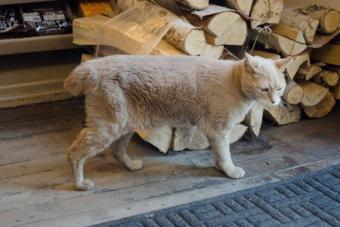it may indicate serious health problems. Contact the ENT specialists of the Sanmedexpert clinic: we use the most modern methods of diagnosis and treatment in our work.
Leave your phone number.
The clinic administrator will call you back.
Sign up for an appointment
Among the sense organs that nature has given us, the sense of smell stands apart. The ability to distinguish smells in humans is not as pronounced as in animals, but much depends on it.
Why is the sense of smell dulled?
- The most common cause of a decrease in the ability to distinguish odors is mucosal edema. It can occur with allergies, viral diseases, as well as some other diseases.
- The second most popular reason for a decrease in smell is all sorts of neoplasms. Polyps, adenoids, tumors can cause nasal breathing problems.
- Also, people who have pathologically narrow nasal passages or a deviated nasal septum (for example, after injuries). In this case, only surgery will help restore normal sense of smell.
- Burns of the nasopharynx, toxic damage to the mucous membrane can also deprive you of the ability to smell.
- The sense of smell also decreases somewhat with age - this is due to the fact that the mucous membrane undergoes dystrophic changes.
And is it curable?
In some cases, in order to return to a person the opportunity to enjoy all the variety of smells, it is enough to eliminate the reason why the nose began to “work incorrectly”. The simplest case is inflammatory processes. As a rule, they are short-term, and properly selected treatment helps to restore all impaired functions.
If the inflammation is chronic, it should be taken especially seriously: in no case do not postpone a visit to the doctor if a runny nose and swelling in the nose area have been preventing you from living for more than a week. Polyps, tumors in the nose can also lead to loss of smell, but, as a rule, after surgical treatment, the ability to distinguish smells is restored.
It is much more difficult to restore the sense of smell if the cause is a disturbance in the functioning of the receptors, the consequences of injuries or pathologies in the development of the nasal passages. In this case, the main thing is to try to support the mucosa as much as possible, to try to return it to its normal state. Quit smoking and stop drinking alcohol - these bad habits lead to mucosal changes that can become chronic.
How to get your sense of smell back
If you don’t smell at all, or your usual foods start to smell differently than they should (for example, flowers smell like fish), see a doctor immediately. The first specialist should be the ENT doctor of our clinic: if necessary, he will prescribe additional types of diagnostics (ultrasound, examination using the Zwaardemaker olfactometer). If you suspect a disorder associated with the work of nerve fibers, the doctor will refer you to a neurologist.
In no case do not postpone a visit to the doctor if you notice that you can clearly distinguish only pronounced and pungent odors. This may indicate, among other things, the development of such serious diseases as Alzheimer's disease,.
Is it possible to permanently lose your sense of smell?
Unfortunately yes. In some cases, this important function cannot be restored. Most often, the loss of smell is considered irreversible, the cause of which was dystrophic changes in the mucosa. In old age, gradual insensitivity to smells may even be a variant of the norm.
Sometimes the sense of smell is not fully restored even after traumatic or traumatic brain injuries. If the cause of the problem is polyps, tumors, curvature of the nasal septum, surgery will help you.
Loss of Smell Questions and Answers
Is it possible to lose the sense of smell due to nerves?
Answer: In some cases, yes. There have been cases of loss of smell in hysteria, severe neuroses. Not less often there is a partial or complete loss of smell after traumatic brain injury. In this case, you need to try to cope with the problem itself - as a rule, after the onset of an improvement in the patient's condition, the ability to distinguish smells returns. However, as a result of injury, the receptors may no longer "turn on".
Is it true that from an excessive load on the sense of smell, it can weaken?
Answer: Perfumers, chefs, and some other specialists take care of their working tool - the nose - no less than a pianist's hands . Due to the fact that they constantly train their receptors, their sense of smell is better developed than that of ordinary people, they are able to distinguish shades of smells that are inaccessible to other people. In itself, the fact of the daily load on the sense of smell is not a reason for its deterioration. However, working with odorous substances (spices, aromatic oils) can be dangerous in the sense that these substances often cause allergies. Mucosal edema will entail an inevitable decrease in olfactory function.
Loss of smell with a cold is a common occurrence. A person loses the ability to smell if both nostrils are completely blocked. Living in a world devoid of aromas is not very fun, so everyone who suffers from this ailment would like to know how to restore the sense of smell with a runny nose.
Why
Before we learn how to restore the sense of smell with a runny nose, let's talk about why it disappears.
Located in covered with the so-called neuroepithelium. When air hits his cilia, a signal is sent to the brain, recognized by the nerve center responsible for this, as this or that smell.
With a runny nose, the nasal passages are filled with secretions, and the nasal mucosa swells. This is a protective reaction of the body to the activity of viruses and bacteria. But these same secretions and edema block the normal functioning of the neuroepithelium. As a result, the ability to smell smells is reduced and may even disappear altogether. In some cases, the sense of smell is not immediately restored even after the treatment of the common cold.
To restore the sense of smell, there are many means related to both traditional and folk medicine. However, before using them, it is better to consult a doctor. The body of each person is unique, and it is impossible to predict in advance what his reaction to this or that substance will be, whether it will cause allergies.
medical supplies
How to restore the sense of smell and taste with a cold? First of all, the best solution is to see a doctor. Only he can find out the cause of the cold. Depending on this, treatment will be prescribed.
To combat a runny nose and its consequences, as well as to relieve edema, various vasoconstrictor drugs are often used, such as Naphthyzin, Nafazolin, Galazolin and others.
Their instillation into the nose gives a quick but temporary effect. In addition, these funds should not be used for more than five days in a row, otherwise there is an addiction to them, and in the future they will act worse. Finally, such drugs with constant use lead to drying of the mucous membrane.
If the sense of smell is lost as a result of an allergic reaction, the doctor will prescribe antihistamines, and if this is due to the activity of bacteria, antibacterial ones.
Before using the drops, it is advisable to rinse the nasal cavity to clear it of mucus. To do this, you can use saline or a decoction of chamomile.

Inhalations
How to quickly restore the sense of smell with a cold? One of the most effective ways is inhalation. The easiest option is to breathe over the steam of boiled potatoes. For inhalation also use:
- Soda solution. Its temperature should not be more than 30 o, otherwise the soda loses its healing properties.
- Herbal infusions. To restore the sense of smell, chamomile, linden, mint, eucalyptus, sage or calendula are best suited. For infusion, take one or two tablespoons (tablespoons) of dry grass and 0.5 liters of boiling water.
- Essential oils. They drip a few drops. Oils of fir, juniper, mint and eucalyptus are used.
With any method of inhalation, steam should not burn the nasal mucosa, so boiling water should first be slightly cooled. You need to breathe over the steam for 10 minutes, covering your head with a cloth. After inhalation, it is better to lie down, covered with a blanket, and in no case go out into the cold air.

Exercises
How to restore the sense of smell after a cold? Help him to restore simple exercises. The muscles of the nose should be tense for one minute and then relaxed. Repeat for ten minutes. During the day, you can perform 10-12 such series.
In addition, the massage of the wings of the nose works well.
Similar exercises are useful for preventing loss of smell.
warming up
How to return the sense of smell to You can do it with a regular table lamp. It should be directed to the nose, located 25-30 cm from it. To protect the eyes, it is necessary to use dark glasses. The duration of the session should be 10-15 minutes.
Another way is to use salt, calcined in a pan. It is poured into a small bag, cooled slightly and applied to the bridge of the nose. To restore the sense of smell, such warming is done for a week 3 times a day.
Finally, it is common and useful to warm the nose with a boiled egg. It should be applied to the bridge of the nose through a handkerchief, and kept for 6-7 minutes.

Washing
Have you lost your sense of smell? What to do? Nasal irrigation may help. It is carried out to relieve swelling of the mucous membrane. It can be done with a salt solution. It is better to use the sea. If ordinary salt is used, then iodized salt should be taken. To prepare the solution, the ingredient (1/2 teaspoon) is dissolved in 0.5 liters of water.
The washing itself is carried out using a syringe or syringe. The solution is injected in turn into each nostril, the procedure is repeated until the nose is free of mucus.
In addition to saline, you can use a solution based on string or chamomile for washing.
Another option for washing is to inhale the saline solution so that it is felt in the larynx. The solution for this is prepared based on the calculation - a teaspoon of salt per 200 ml of water. The procedure itself should be approached carefully, take a breath slowly, and in no case exceed the dosage of salt in the solution so as not to cause burns of the mucous membranes.

Drops
How to restore the sense of smell with a cold? Drops prepared from a decoction of chamomile, sage and mint are considered the most effective. They are dripped into the nose up to 8 times a day, while the sense of smell is usually restored within two days.
Another means of quickly returning the sense of smell is drops based on aloe juice. The cut leaf of the plant is left in the cold for 4-5 hours, then cut into small pieces and squeezed out the juice. Drip should be 4 times a day. The course lasts 2-3 days.
There are several more effective compositions of drops to restore the sense of smell that you can prepare yourself. For their preparation use:
- Menthol and camphor oil, taken in equal proportions.
- Beetroot juice with honey.
- Lemon juice.
- Fresh celandine juice, diluted with water at the rate of a drop of juice per teaspoon of water.
- Onion juice (one drop per tablespoon of water).
These drops are used three times a day, for several days, until the result is achieved.

Cotton swabs
How to restore the sense of smell with a cold? Cotton wool is impregnated with the prepared composition and placed alternately in each nostril for twenty minutes. This procedure is preferably carried out before bedtime. The composition is prepared on the basis of propolis with the addition of various ingredients:
- Propolis with butter and olive oil (ratio 1:3:3).
- Propolis, honey and peppermint oil (ratio 1:1:2).
- Propolis and butter, mixed as 1:2.
The components of the solutions are combined in a water bath.
Garlic juice (1 part to 10 parts of water) can also be used to soak tampons. They are kept in the nose for 10 minutes up to three times a day.
other methods
As an additional therapy that helps to quickly restore the sense of smell, inhalation of the smell of wormwood, garlic or onions is used. Dry wormwood grass, garlic or onion husks are burned, and then their smell is inhaled for about five minutes. These pungent smelling substances contribute to the normalization of the perception of odors.
Good results are also obtained by lubricating the nasal passages with Asterisk balm.
Inside you can take a decoction of sage. It is prepared from two tablespoons of dry grass per liter of water. The mixture is brought to a boil and infused for 2-3 hours. Drink half a glass three times a day.
By themselves, these methods will not restore the sense of smell, they are used in conjunction with inhalations, rinses and nasal drops.
Head of the Department of Functional Diagnostics
Doctor-neurologist of the highest category, specialist in the field of extrapyramidal pathologies, doctor of the highest category
Lack of smell is a fairly common problem that many people have to face. There are two types of disorders that cause a decrease, temporary or complete loss of smell: anosmia and hyposnia.
Anosmia (from Greek) is a complete lack of smell, which most often occurs due to changes directly in the nasal cavity that prevent the penetration of odorous substances. Another violation of the olfactory function is hyposmia. This is not a complete absence, but a partial decrease in olfactory function. Both of these disorders can be acquired or congenital.
Congenital lack of smell, as a rule, is the result of malformations or the complete absence of olfactory pathways. Such pathologies in most cases are accompanied by other serious malformations.
The most common is acquired anosmia. It may be central or peripheral in origin. Central anosmia is also called cerebral or intracerebral. It appears as a result of limited damage to the central nervous system by various diseases: tumors, encephalomyelitis, damage to the vertebral or intracerebral arteries. In some cases, for example, when the cortical centers of the olfactory analyzers are damaged, the patient can catch the smell, but cannot determine it. This type of anosmia can also be caused by the effects of meningitis or traumatic brain injury.
There are several varieties of peripheral lack of smell (depending on the causes of the appearance). It can be:
- functional. The main reason for the appearance is hysteria and neuroses, allergic rhinitis, acute respiratory infections, etc.
- Respiratory. The reason is pathological changes in the nasopharynx. These can be deviated nasal septum, adenoids, tumors, ozens, etc. Due to such changes, the air cannot reach the zone in which the peripheral segment of the olfactory analyzer is located.
- Essential. This violation develops as a result of lesions of the peripheral parts of the analyzer. This can happen with trauma, inflammatory processes, chemical or thermal burns.
- age. This type of violation is also called "senile anosmia." It occurs with atrophy of the nasal mucosa.
Diagnosis of anosmia
In order for the doctor to be able to prescribe a treatment that will alleviate or completely relieve the patient of anosmia, it is necessary to conduct a thorough examination that will help identify the true causes of the disease. Quite often, when diagnosing a disease, a patient needs to undergo a computed tomography of the brain, as well as a consultation with a neurologist or neurosurgeon. The second is necessary to exclude the development of a tumor process in the brain.
How to treat anosmia?
In most cases, the doctor will not be able to immediately answer this question. First you need to determine whether it is possible to cure this disease in each case. If treatment is possible, depending on the causes of the disease, the doctor prescribes complexes of drugs and procedures that could effectively cope with the task.
Only traditional medicine can promise you a quick treatment for any type of anosmia, but no one can guarantee whether such treatment will be effective, and most importantly, safe.
If you have lost or lost your sense of smell, seek help from the Clinical Brain Institute. Our experts will help you find the cause of the disease and prescribe you a safe and effective treatment.
Loss of smell, or anosmia, is a rather serious problem for a person, significantly worsening the quality of his life. And we are talking not only about aesthetic moments - the pleasure of inhaling the aroma of flowers or the New Year's mood associated with the smells of citrus and cinnamon. Decreased or lost sense of smell can be dangerous to overall health. A pleasant smell stimulates the secretion of digestive juices, and the absence of its perception can cause digestive disorders. Many substances that are poisonous to humans have an unpleasant odor and irritate the nasal mucosa, causing sneezing, and with anosmia, they freely enter the body and have adverse effects.
The reader should understand that the loss of smell, although often not a direct threat to life, still requires the patient to seek advice from a specialist. About why the sense of smell decreases and disappears and what are the principles of treatment of this condition, and will be discussed in our article.
Classification and causes of loss of smell
During the flowering period, allergic rhinitis can cause a decrease in smell.Both loss of smell (or anosmia) and its decrease (or hyposmia) can be congenital or acquired.
Congenital lack of smell is a consequence of the complete absence of the respiratory tract or their partial underdevelopment. Often this pathology is accompanied by congenital anomalies in the development of the nose or facial skull.
Acquired loss of smell can be of peripheral and central origin: peripheral occurs when the disorder is localized in the region of the nose itself, and central - with an organic lesion of the central nervous system.
Peripheral anosmia, in turn, depending on the causes that caused it, is divided into 4 types:
- functional (it is a manifestation of viral infections, in this case it is a consequence of swelling of the nasal mucosa; it can occur with neuroses and hysteria; after the elimination of the cause of anosmia, the sense of smell is fully restored);
- respiratory (develops when air containing molecules of aromatic substances passes through the nasal passages, but for some reason cannot reach the peripheral part of the olfactory analyzer; often these reasons are turbinate hypertrophy, and other benign and);
- senile, or age-related (the result of atrophic changes in the nasal mucosa, in particular the mucous epithelium, which leads to dryness of the nasal mucosa);
- essential (the result of a lesion directly in the peripheral part of the olfactory analyzer, which has arisen in connection with the inflammatory process in this area, burns of the nasopharynx of any nature, domestic or surgical trauma to the nose / nasopharynx, hypo- or atrophy of the olfactory epithelium, prolonged compression of the olfactory cavity by any tumor process , as well as its toxic damage).
Peripheral anosmia in most cases is characterized by a decrease in taste sensations in parallel with a deterioration in smell.
Decreased sense of smell of central origin, or cerebral anosmia, can occur with the following diseases:
- acute or chronic cerebrovascular accident of atherosclerotic or other nature;
- neoplasms of the brain in the region of the anterior cranial fossa (meningioma, glioma of the frontal lobe);
- disseminated encephalomyelitis;
- traumatic brain injury of any severity;
- arachnoiditis;
- meningitis;
- inflammation of the ethmoid sinus -;
- Alzheimer's disease.
With cerebral anosmia, if the pathological process is localized in the region of the cortical centers of smell, a person determines the presence of a smell, but cannot verify, determine its type.
Diagnosis of anosmia
To confirm instrumentally the patient's complaints that he does not smell, olfactometry is performed - measuring the sharpness of smell with a special device - the Zwaardemaker olfactometer. The device is a hollow porous cylinder that contains an aromatic substance and into which a long glass tube with divisions is inserted. During the study, this tube is gradually lowered into the cylinder - in this way, the dosing of the odorous substance entering the nose of the subject takes place. The amount of immersion of a glass tube into the cylinder is expressed in centimeters according to the number of divisions immersed in the cylinder and is a unit of measurement of olfactory acuity - olfaction.
In the process of examination, a person first determines the appearance of some kind of smell - this value of olfaction is called the threshold of sensation. The tube continues to be lowered into the cylinder, and at a certain moment the subject learns what kind of aroma he feels - this is the recognition threshold, which is always higher than the threshold of sensation that occurs earlier. The recognition threshold directly depends on whether a person is familiar with the aroma provided to him or not.
With anosmia, the very fact of the absence of smell is determined, but only in a part of the case it is possible to determine what origin it is - central or peripheral. As mentioned above, with a loss of smell of the brain nature, the patient can feel the presence of an odor without the possibility of recognizing it, therefore, olfactometry allows you to determine the normal or increased threshold of sensation, and the recognition threshold is either sharply increased or not determined at all.
An olfactometric test can also be carried out using all kinds of odors, which includes 40 task items for the patient (for example, identify a specific odor from 4 provided). The reliability of this test is quite high - about 0.95, but it is sensitive to gender and age differences. Patients suffering from a complete loss of smell will have a test result of 7 to 19 out of 40 points.
If a patient is found to have a lack of smell, further research should be aimed at establishing the causes that caused them. The most important in this case is computed tomography of the brain, which makes it possible to detect organic changes in the frontal lobe and other pathologies. If changes in the brain are detected, in order to clarify the diagnosis, further examination and determine the tactics of treatment, the patient is shown a consultation with a neuropathologist and / or a neurosurgeon.
Treatment for loss of smell
 The nasal polyp prevents the passage of molecules of aromatic substances through the respiratory tract - they do not reach the peripheral olfactory analyzer, anosmia develops.
The nasal polyp prevents the passage of molecules of aromatic substances through the respiratory tract - they do not reach the peripheral olfactory analyzer, anosmia develops. Treatment methods for anosmia and the possibility of restoring the sense of smell are, in principle, determined in each case individually and directly depend on the type of disease that caused the pathology of smell.
If the cause of anosmia is viral or bacterial rhinitis or sinusitis, the patient is prescribed local and general antiviral or antibacterial therapy, plus local anti-inflammatory and systemic or local antiallergic drugs (the latter help to reduce swelling of the nasal mucosa).
With allergic rhinitis, the restoration of smell is facilitated by the appointment of antihistamine (anti-allergic) drugs locally and / or systemically, and in case of a severe allergic reaction or in the absence of the effect of antihistamines, even corticosteroid hormones are prescribed, which are known to have a powerful anti-inflammatory effect.
If polyps are found in the nasal cavity, the only effective method of treatment that will lead to the restoration of smell is the removal of neoplasms surgically. The same applies to other tumor formations in the nose, but in the case of their malignant nature, radiation or chemotherapy will also be added to the operation (of course, the restoration of smell in the latter case is absolutely not guaranteed, but still possible).
In the case of a deviated nasal septum, the olfactory function of the nose will be restored only after a successful operation to align it.
With central anosmia caused by a tumor process in the brain, treatment is usually combined - surgical removal of the neoplasm plus chemo- and / or radiation therapy. However, in some cases, at advanced stages of the disease, radical treatment is inappropriate, and only symptomatic is carried out - it is impossible to restore the sense of smell.
Some doctors suggest adding zinc preparations to the complex treatment of the cause of anosmia, since its deficiency leads to deterioration and distortion of the sense of smell, and vitamin A, the lack of which in the body causes degeneration of the epithelium of the mucous membranes, including the nose, as a result of which the sense of smell decreases.
At the end of the article, I would like to repeat once again: despite the fact that most of the causes of loss of smell are not life-threatening for the patient, he should not let the disease take its course or self-medicate at home. It is worth seeking help from a specialist as soon as possible to find out which disease caused anosmia - in the case of such an unpleasant finding as a tumor of the nasal cavity or brain area, the chances of its successful treatment at an early stage are much greater than in a neglected one.
The program “About the most important thing” tells about the loss of smell:
Lack of smell usually entails such a phenomenon as the loss of the ability to taste. But the ability to perceive smells, like tastes, affects the general condition of the body and the psychophysical state of a person. Why is this happening? It has been proven that taste, as well as the ability to perceive aromas, determine human behavior. And simply olfactory functions bring pleasure and joy to life.
Unfortunately, for a number of reasons, dysfunctions of the olfactory organs can occur, which makes it impossible to perceive odors. This state of affairs may even last for several years. After some time, this ability may recover, and in some cases it may not recover at all. That is why the question on the topic “How to restore the sense of smell with a runny nose and due to other reasons?” remains open.
There are several types of violations of the functions of smell. It:
- Decreased ability to smell (the phenomenon is called "hyposmia");
- Complete loss of the sense of smell (anosmia), with loss of the ability to taste. It should be noted that anosmia can be temporary or permanent, irreversible;
- Perverse perception of smells (dysosmia).
There may also be a phenomenon such as exacerbation of sensitivity to odors. The reasons for the loss of smell and taste can be varied. The first two of the listed conditions can be observed in the case of:
- Inflammation of the mucous membranes of the nose as a result of viral diseases, bacterial and allergic rhinitis, the growth of polyps. The exacerbation of the condition with rhinitis is especially evident in the spring and summer;
- Damage to the receptors responsible for the perception of smell in the organs of smell;
- Poisoning with toxic chemicals;
- The presence of anatomical pathologies of the structure of the nasal septum. Complications due to such violations can be observed for several years;
- Long-term use of certain drugs (especially vasoconstrictor drops and sprays). It must be remembered that the treatment of problems relating to the nasal cavity should not be based solely on their use;
- After traumatic brain injury. In this case, the air inhaled by a person enters through the area responsible for the perception of smell, but due to brain damage, information about odorous substances is not received. Thus, the sense of smell disappears;
- After surgical interventions of a different nature (but it is easy to restore the ability to taste and smell in this case, since anosmia is only temporary, and the sense of smell disappears for a short time);
- Damage to the olfactory tract, which most often occurs if there has been a bruise at the back of the head. In this case, the taste is lost. Violation can occur even if the injury was received several years ago;
- Age disorders. In this case, the loss may indicate that there are serious reasons for contacting specialists. Why this is necessary will be discussed below.
Effective methods for restoring the lost sense of smell
In the event that the nose has ceased to perceive odors, it is necessary to treat the immediate causes of this phenomenon. A specialist will help to establish why this happened. Lack of smell can indicate not just viral diseases, but also serious health problems, up to brain injury or damage to nerve endings. Of course, it is not necessary to explain why in such cases urgent treatment is required.
Is it possible to restore a disturbed sense of smell if there is no reason to suspect serious health problems? In fact, there are certain ways in which this can be done.
First of all, it is necessary to make sure that a person is not exposed to chemical toxic substances, which not only block the ability to perceive taste and smell, but also poison the body. It is also necessary to make sure that the objects surrounding the person are not allergens. In order to avoid loss of taste and the inability to smell aromas through a stuffy nose, it is necessary to do wet cleaning in living quarters daily. If a seasonal loss of smell has been observed for several years, it is safe to speak about the allergic nature of the phenomenon.
If the nose is not breathing and has stopped smelling, you can try to improve the condition with effective tips on how to restore the sense of smell for a runny nose and for other reasons:
- Do periodic instillations into the nose with menthol oil, and also lubricate the temples and nose with it, and then lie down calmly;
- Thoroughly chew the spicy cloves for five minutes, but do not swallow the spice. This method guarantees the restoration of the ability to feel tastes and smells if the sense of smell is lost;
- Make hot baths for hands and feet. The procedure should be carried out for about 15 minutes, and during this time it is necessary to add hot water;
- Wash the nasal cavity with warm water with the addition of salt. It is especially useful to carry out this procedure if the sense of smell is lost during a cold;
- Take a decoction of sage. This helps to restore the taste and perception of aromas.
It is acceptable to use these methods, but it must be remembered that they will not replace full-fledged treatment. If it is not possible to restore the taste of the sensation of aromas on your own, and the nose is blocked, you must urgently seek help from a specialist who, depending on the underlying cause, will prescribe an adequate treatment.
Loss of smell with a cold
Lack of smell often occurs if you have a runny nose or stuffy nose. Why is this happening? Loss of smell occurs under such conditions due to swelling of the mucous membranes. The nose is exposed to the active activity of bacteria. The puffiness resulting from these factors blocks the receptors and channels that are responsible for the perception of smells and tastes. Thus, after the penetration of bacteria into the nasal cavity, the ability to fully sense the surrounding odors completely disappears.
What to do in such cases?
Usually, drug treatment is used for this purpose. It should be noted that if nothing is done, the damage to the olfactory receptor cells can become irreversible. That is, the ability to smell and taste in a few years will be lost forever.
In order to treat yourself, you can do the following:
- Carry out inhalations based on aromatic oils;
- Inhale the smell of burnt onion peel;
- Do nasal lavage based on the Cuckoo method.
After these manipulations, an improvement in the condition can be observed. But if these methods do not help to restore the sense of smell after a runny nose, only specialized treatment will help to avoid irreversible consequences.
Loss of smell in the elderly

Scientists have found that the sense of smell that disappears in older people is a disappointing sign, namely, a harbinger of death in just a few years. But the reasons why this phenomenon occurs are not clear. The risk increases if the elderly have lost their sense of smell due to the growth of polyps in the nasal cavity. In addition, the loss of the ability to feel tastes and aromas may indicate Alzheimer's disease and the development of diabetes. Therefore, if a similar symptom is found in the elderly, it is not necessary to draw hasty conclusions and take up self-treatment, but, without delay, seek the advice of a doctor.
How to get your sense of smell back after a few years?
Sometimes it happens that the sense of smell and the inability to taste is a long-term condition and persists for several years in a row. Of course, many are interested in why this happens and whether it is possible to restore these sensations. Experts explain that the loss of smell due to acute respiratory diseases is due to intoxication, which leads to damage to the nerve fibers of the nerve. That is why, if the loss of taste and smell has been observed for several years, it is necessary to visit specialists such as an ENT doctor and a neurologist. They examine the patient's nose and conduct the necessary instrumental studies. After some time, the reason will be clarified.
Is it possible to regain the ability to feel tastes and aromas? And after what time can this ability be restored? Unfortunately, there is no cure for this type of disorder. But experts do not exclude the possibility of spontaneous restoration of smell in some cases. It may appear after a few years or immediately. The reasons for this phenomenon have not been fully elucidated.





